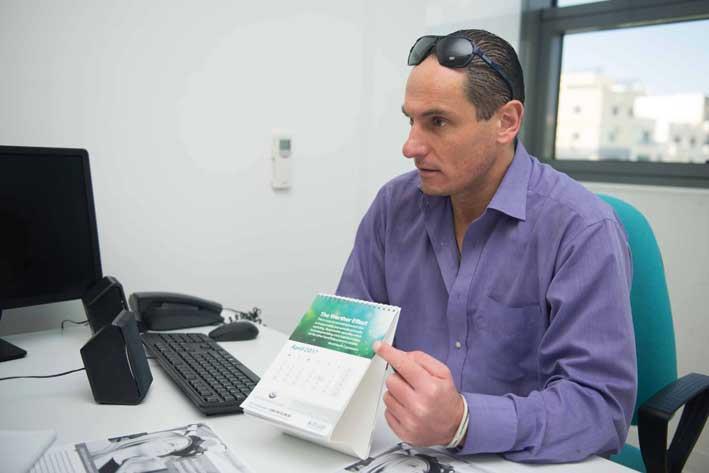Imagine that someone is contemplating ending their life, and goes to one of Malta’s most likely places to do so. At each such location there will be a fluorescent pole and deterrent/preventative features – including a button to press for help. In the meantime, a 24/7 National Crisis Team will be on the other end, screening the locations with infrared, 360° webcams.
The crisis team will be holistic and will include doctors, psychiatrists and social workers. The technology will permit audio and visual interaction, while allowing the team to survey the area with zoom functions, as well as talk to the individual via a loudspeaker. At the same time, a crisis response vehicle will be on its way to the scene to prevent the suicide.
“Engaging the person is already de-escalating the crisis,” elaborated psychiatrist Mark Xuereb, part of Crisis Resolution Malta, in an interview with The Malta Independent on Sunday. Dr Xuereb is advocating that this Oxford System suicide prevention initiative be implemented in Malta, along with a National Suicide Prevention Strategy.
Every year, seven out of 100,000 people in Malta and Gozo take their own lives, Dr Xuereb explains, citing World Health Organisation statistics. “This has remained relatively stable over the years, but it is self-harm that is increasing at a worrying rate, and people who self-harm are more likely to commit suicide.” Dr Xuereb went on to say that in a year there are about 900 people in Malta and Gozo who are contemplating taking their life, with varying degrees of commitment.
Furthermore, the Malta Crisis Team sees about 10 to 15 people suffering from depression every week. Asked what could be causing this increase in depression and self-harm, Dr Xuereb points to increasingly isolated lives, warped communication and a lack of empathy due to technology and the need for instant gratification and quick fixes. He also mentions the ‘lack of moral conscience’ on social media, encouraging users of networks to be socially responsible: “People get hurt,” he said, “so everyone should think before they type.”
Keeping the statistics in mind, Dr Xuereb emphasises the fact that “people are not numbers. Although the figures are important, we want a system that will be successful even if it saves just one life. A lot of work is being done, but each suicide is a tragedy and each is one too many,” he said, saying that this month alone, there have been three known cases of suicide in Malta and Gozo.

The plan, which has been confirmed to have been successful abroad, will cost between €60,000 and €70,000 to implement, including the surveillance system, a crisis response vehicle, a national crisis team and providing training for that team. “It will also save therapy costs and admission costs,” said Dr Xuereb, adding that the source of funding, be it government or a private organisation, is not important, “as long as we are saving lives”.
Another section of the National Strategy is working with the media. Dr Xuereb stressed that the stigma attached to suicide is so huge that awareness cannot be raised. “It’s so stigmatised that no one even really knows, for example, that on Suicide Prevention Day on 10 September, everyone should light a candle near their window to raise awareness,” he said. He went on to say that, even in the media, reporting that is not sensationalised and uses the right words, and the elimination of unnecessary details along with the input of an expert’s advice and advertising help lines, has been proved to reduce suicides.
When someone is seriously considering ending their life, they will often keep thinking about it and will have given signals to their doctor, friends and/or family prior to the attempt, Dr Xuereb said, emphasising that prevention is extremely possible.
Asked if there are signals that indicate someone we know may be contemplating suicide, he said that the worst thing one can do is dismiss a comment someone makes that might suggest they are having suicidal thoughts. It is also important, he said, to notice if a friend or relative seems to be somewhat withdrawn and is apparently not sleeping or eating well, amongst others.
“Malta’s crisis team is doing a good job”, Dr Xuereb said, “but it can improve, because people are still dying. He said that Malta’s crisis team and mental health services should get a “bigger slice of the cake”, by way of an increase in the number of staff and resources, so they can offer more support for the families of these victims.
The Crisis Resolution team can be contacted 24/7, including public holidays, on 9933 9966 or by email to [email protected]